The Childhood Cancer Blog
The Childhood Cancer Blog
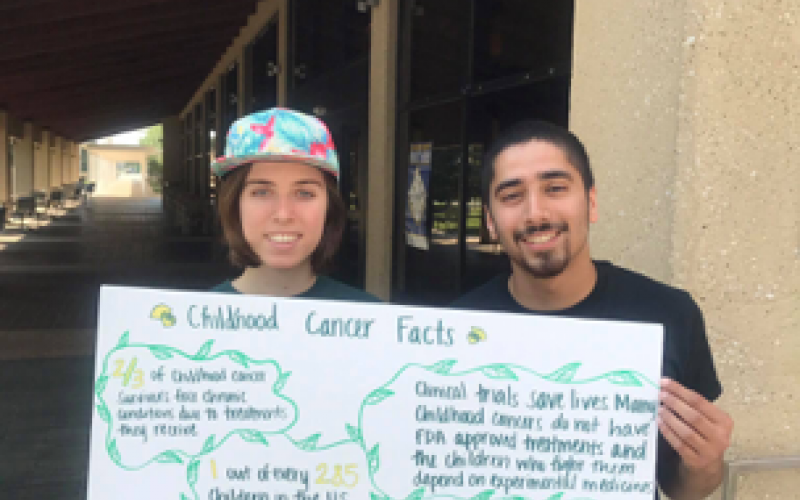
Allie Neenan and Usman Hyder, the first two presidents of the UT Dallas Lemon Club.

The Lemon Club is a student-led club that functions under the direction of ALSF to raise awareness and funds for childhood cancer research. ALSF’s Lemon Clubs plan and execute on and off campus fundraisers for the duration of their school year. Lemon Club chapters are encouraged to host a variety of awareness and fundraising events to help spread the mission of ALSF and to meet their fundraising goals.
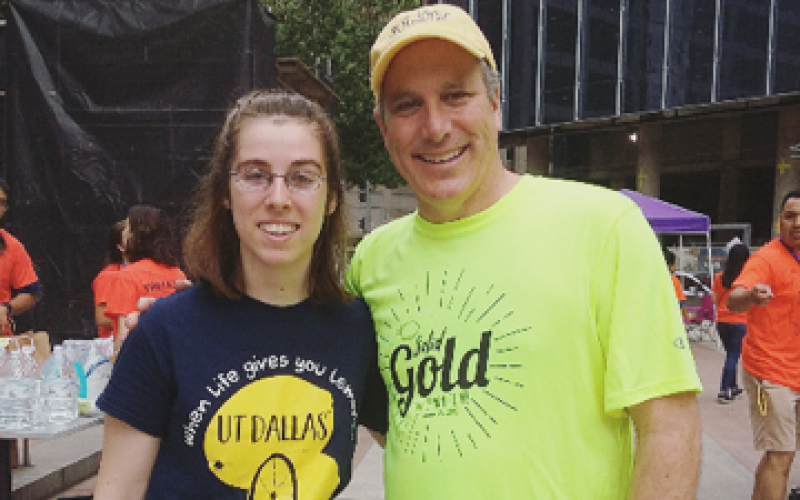
Allie Neenan served as President of the UT Dallas Lemon Club for the 2016-17 and 2017-18 school years. She will go on to earn her PhD in Clinical Psychology and hopes to pursue a career in pediatric psychosocial oncology. She met Foundation Co-Executive Director Jay Scott (pictured) at the Lemon Climb Houston in March 2018.
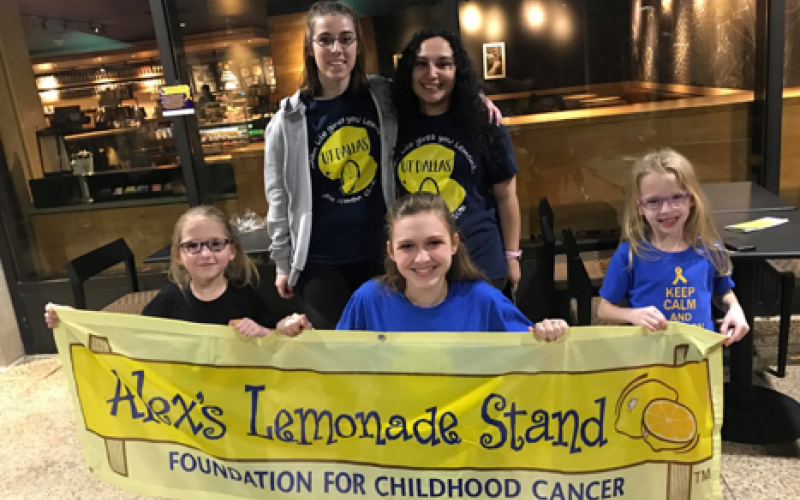
Two of UTD Lemon Club's leaders at this year's Talent Show fundraiser, along with Hero Isabella Day and SuperSibs Anna and Jaclyn (Anna is also an ALSF ambassador).
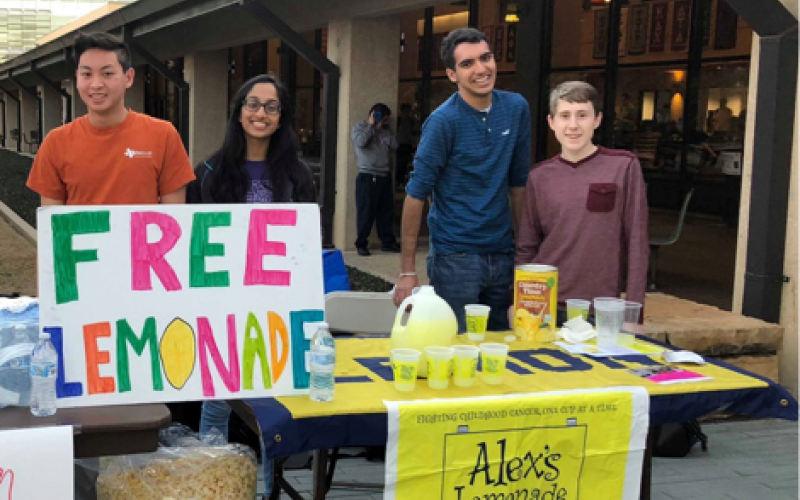
Volunteers at a recent lemonade stand hosted by the UT Dallas Lemon Club.
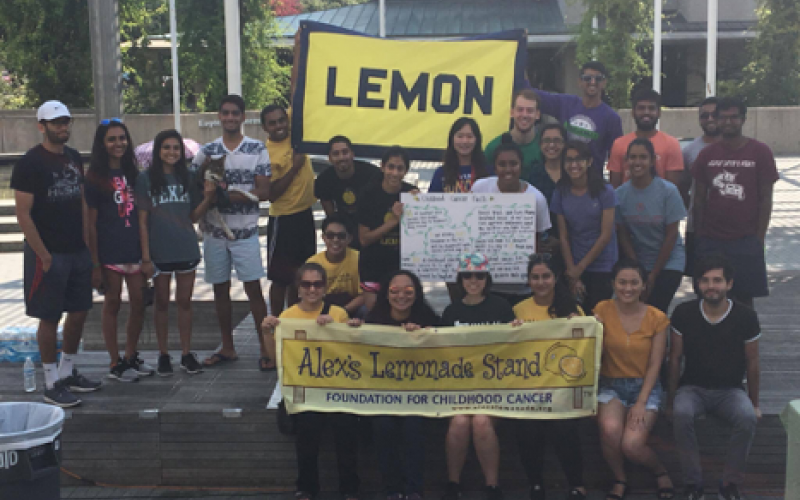
All the runners from this year's Million Mile fun run hosted by the UT Dallas Lemon Club.
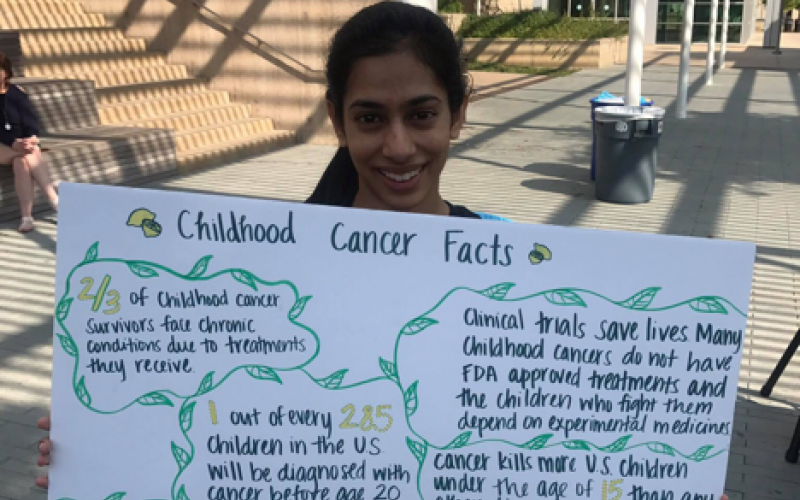
The UT Dallas Lemon Club keeps this sign at all their lemonade stands to educate as many people as possible.
by Allie Neenan, founding co-President of the Dallas Lemon Club at the University of Texas
For the past three years, I have been a leader of the Dallas Lemon Club at the University of Texas (UT). We are a group of students from varied backgrounds with a common goal: curing childhood cancer. I learned about the club from its founder, my classmate and dear friend, Usman. I never heard of Alex's Lemonade Stand Foundation before meeting Usman, but his passion for this cause was contagious. Alex's legacy has that effect on people.
When the... Read More

“It's simple, you see for this whole thing isn't about me. As long as kids are sick, I'll do what I can to help raise money through my lemonade stand.” - Alexandra “Alex” Scott (January 18, 1996 – August 1, 2004)

“Alex showed us that a life lived with gratitude allows you to overcome challenges – that you can truly make lemonade from lemons!” - Liz Scott, Alex’s Mom
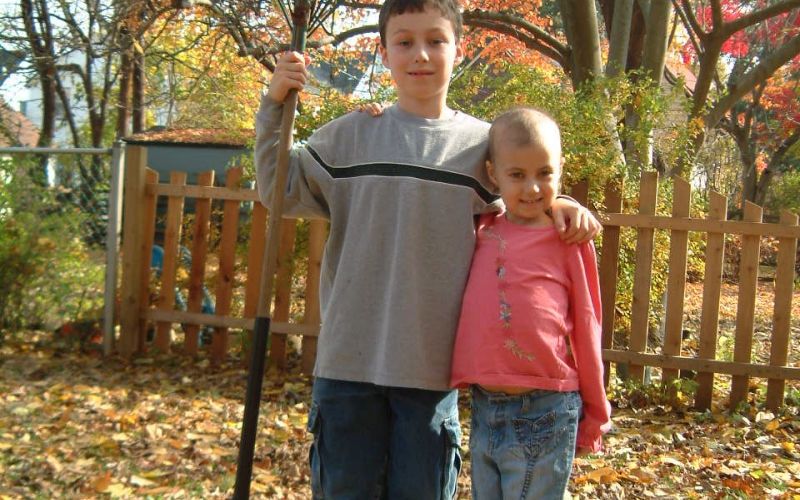
“I could remember you as a lot of things: the lemonade girl, a childhood cancer victim, my close friend, my little sister. But none of them do you justice; you would not be you if they were not all true. More than anything else, I remember you for what you taught me. You, as a terminally ill child, were still appreciative of the blessings that you had. To me, that describes you better than any label, encapsulates your image better than any picture--it reminds me that even though you were never old in age, in some ways, you were old in wisdom. For the lessons that you taught me, I will always remember you and I will always be grateful.” -
Patrick Scott, Alex’s Brother
I can’t believe it’s been 14 years since I had the pleasure of hearing my daughter Alex’s voice, seeing her smile, and just sitting alongside her. A lot has happened since then!
When I first lost Alex, I could not imagine my life without her. Of course my three sons kept me going and gave me a reason to smile and keep moving forward. But looking back on it, I realize that even in her absence, Alex also gave me a reason to smile and keep moving forward. She left work to be done to reach her dream of a cure for all children with cancer. She also left a lifetime of lessons about... Read More

DIPG is a rare but lethal tumor that occurs in the brainstem. It mixes cancer cells with normal cells. About 300-400 children are diagnosed each year and live an average of 10 months after diagnosis.
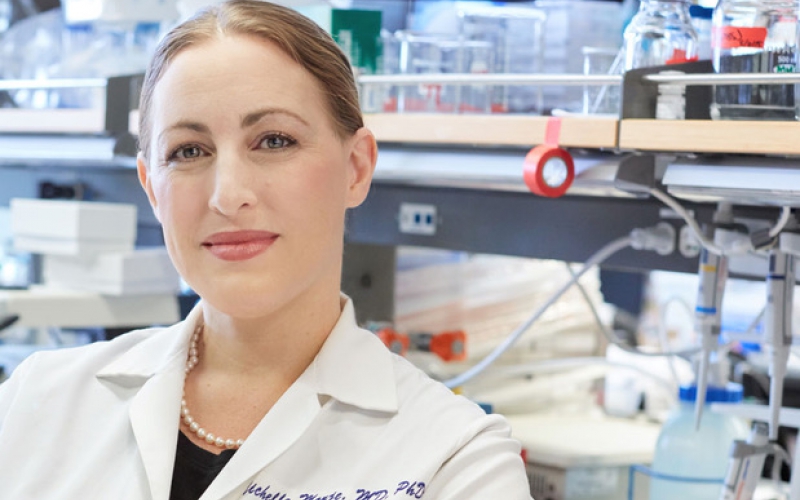
Michelle Monje, pictured here at her lab at Stanford University. In addition to DIPG research, Dr. Monje also studies spinal cord tumors, which can share genetic characteristics similar to high-grade gliomas like DIPG. Dr. Monje is also the co-chair for the High-Grade Glioma section at ALSF's Crazy 8 meeting this September in Philadelphia.
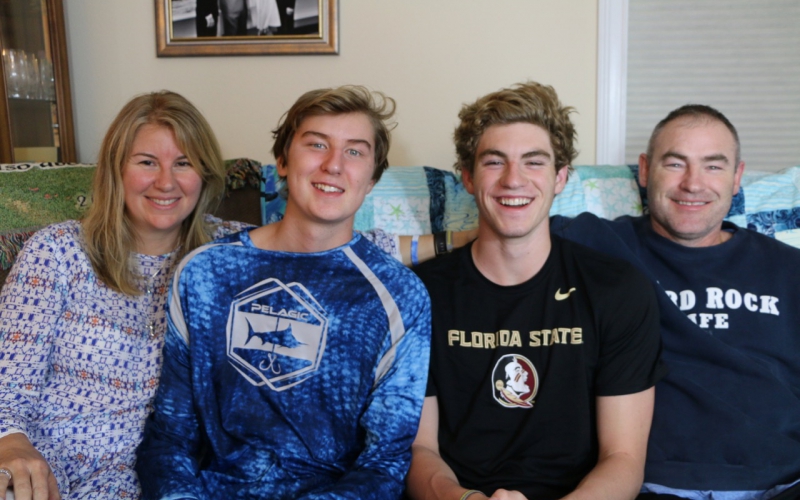
Kayne Finley was a kind and compassionate high school senior. In October 2016, Kayne experienced unusual health issues which led to a diagnosis of DIPG. One year and one day later, Kayne passed away. Kayne is pictured above with his mother, brother and father.

For doctors to find cures for lethal brain tumors, they need tissue samples. However, samples from a biopsy are often only enough for a clinician to use to determine the diagnosis. There is typically little left over for research purposes. Families and patients can make profound and meaningful gifts by donating post-mortem tissue to research labs to help doctors replicate, model and study tumors in ways not possible before. In the months before his death, Kayne, pictured above, signed a directive ensuring his tumor could be donated for DIPG research.
by Trish Adkins
When a child receives the diagnosis of diffuse intrinsic pontine glioma (DIPG), the diagnosis comes with an end date.
Thus far, DIPG is always lethal.
But, ALSF-funded grantee Dr. Michelle Monje of Stanford University, does not believe it has to be. Dr. Monje, who specializes in studying high-grade gliomas, is close to a powerful breakthrough that could change the prognosis for children with DIPG.
... Read More
Pages















